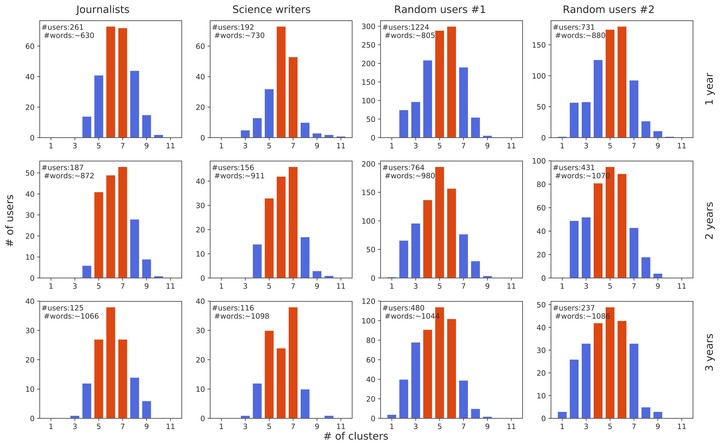Structural Invariants in Individuals Language Use: The “Ego Network” of Words

Abstract
The cognitive constraints that humans exhibit in their social interactions have been extensively studied by anthropologists, who have highlighted their regularities across different types of social networks. We postulate that similar regularities can be found in other cognitive processes, such as those involving language production. In order to provide preliminary evidence for this claim, we analyse a dataset containing tweets of a heterogeneous group of Twitter users (regular users and professional writers). Leveraging a methodology similar to the one used to uncover the well-established social cognitive constraints, we find that a concentric layered structure (which we call ego network of words, in analogy to the ego network of social relationships) very well captures how individuals organise the words they use. The size of the layers in this structure regularly grows (approximately 2–3 times with respect to the previous one) when moving outwards, and the two penultimate external layers consistently account for approximately 60% and 30% of the used words (the outermost layer contains 100% of the words), irrespective of the number of the total number of layers of the user.